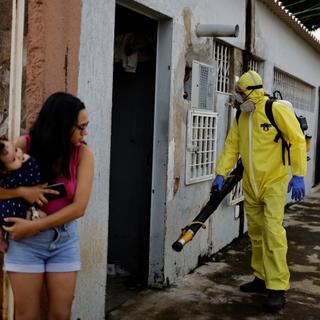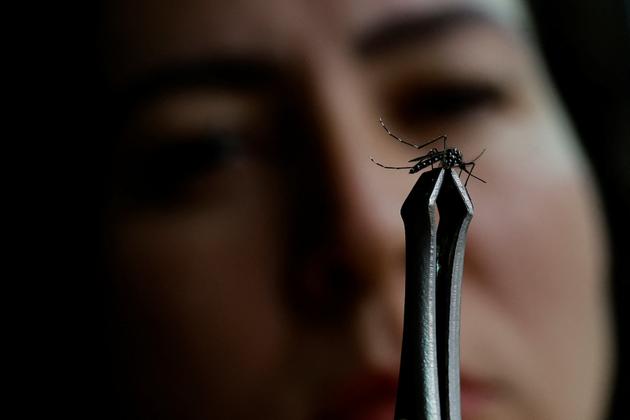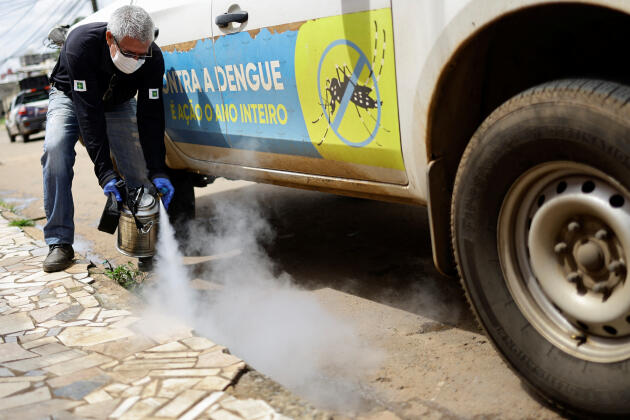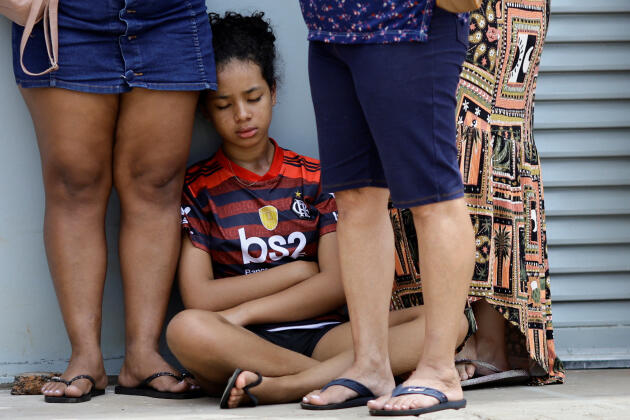


Brazil threatened by an unprecedented dengue epidemic
NewsThe country is experiencing an explosion in the number of cases, particularly in Brasilia, where the incidence is 1,700 cases of dengue per 100,000 inhabitants. Hospitals are struggling to cope.
Is Brazil threatened by a major new epidemic? Barely recovered from the Covid-19 pandemic (which claimed 709,000 victims), the country is now facing the accelerated spread of another devastating virus, this time the familiar dengue fever. The number of infections in recent weeks has soared to the point where experts are already talking of a "historic" and even "unprecedented" crisis.

Since the start of 2024, the Ministry of Health has counted over 408,000 cases of this viral disease – transmitted by the Aedes aegypti mosquito, which can cause intense pain and fever – 337% more than for the same period in 2023. Already, 62 people have officially died as a result of infection from the virus, and a further 279 "suspected" deaths are currently being authenticated.
More than half of all cities in Brazil are affected, and four states have declared a state of health emergency. The situation is particularly serious in Minas Gerais (southeast), Acre (Amazon), Parana (south) and, above all, the federal district of Brasilia. The capital has an incidence rate of 1,700 cases of dengue per 100,000 inhabitants, well above the alert threshold of 300 cases per 100,000.
'Heat and humidity'
As worrying as it already is, the epidemic is still in its infancy. According to the Ministry of Health, Brazil could be facing a wave of 4.2 to 5 million cases of dengue fever in 2024, a level never seen before in a country accustomed to tropical diseases. By way of comparison, the worst year in this respect was 2015, when 1.6 million Brazilians were infected with dengue fever, a third of the current forecast for 2024.

Over the past few days, a minor panic has been affecting Brazil. Sales of anti-mosquito spray have soared by 400%, according to figures from Nutriex, a company specializing in this type of product. In Brasilia, hospitals are struggling to cope with the influx of tens of thousands of feverish patients. On February 5, to ease the burden on the sector, the Air Force opened a field hospital in Ceilandia, one of the capital's satellite cities. In just three days, it admitted over 3,500 patients.


"There is a combination of factors behind this epidemic," explained Luiz Durigon, virologist at the Pasteur Institute in Saõ Paulo. The first of these is climatic: "The El Niño phenomenon caused drought and high temperatures in 2023, followed by heavy rainfall. Heat and humidity is the ideal cocktail for mosquito proliferation," the researcher noted.
Fewer public education campaigns
But the main cause lies in public policy. "The Aedes aegypti mosquito breeds in the home. To prevent it from multiplying, the population has to respect certain rules on a daily basis – cover cisterns, dispose of waste water, wash dog bowls. However, over the last decade, the authorities have let their guard down and considerably reduced public awareness campaigns. This has led to general laxity and a resurgence of dengue fever," the virologist lamented.
You have 50% of this article left to read. The rest is for subscribers only.
